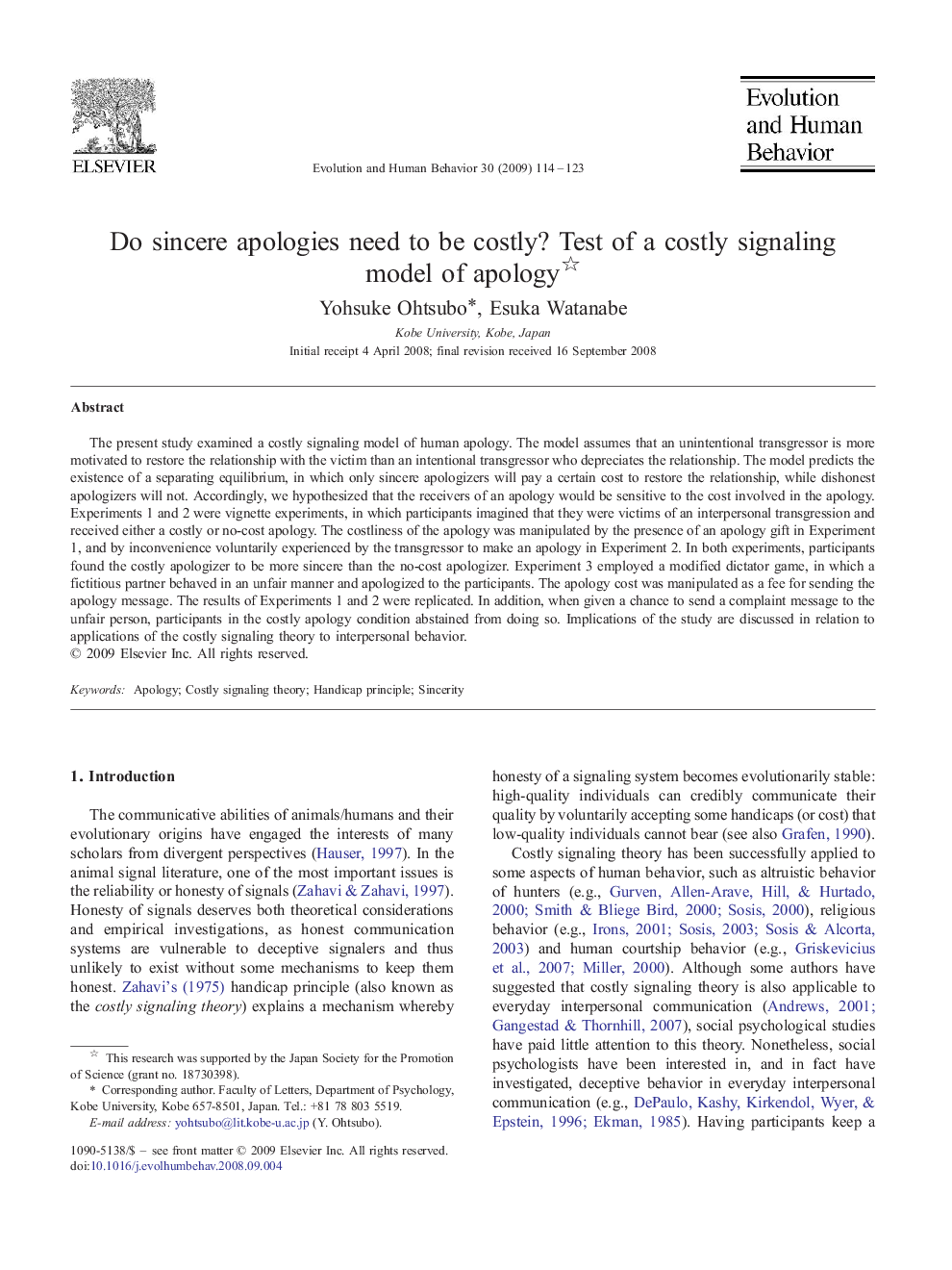| کد مقاله | کد نشریه | سال انتشار | مقاله انگلیسی | نسخه تمام متن |
|---|---|---|---|---|
| 943551 | 925482 | 2009 | 10 صفحه PDF | دانلود رایگان |

The present study examined a costly signaling model of human apology. The model assumes that an unintentional transgressor is more motivated to restore the relationship with the victim than an intentional transgressor who depreciates the relationship. The model predicts the existence of a separating equilibrium, in which only sincere apologizers will pay a certain cost to restore the relationship, while dishonest apologizers will not. Accordingly, we hypothesized that the receivers of an apology would be sensitive to the cost involved in the apology. 2 and 3 were vignette experiments, in which participants imagined that they were victims of an interpersonal transgression and received either a costly or no-cost apology. The costliness of the apology was manipulated by the presence of an apology gift in Experiment 1, and by inconvenience voluntarily experienced by the transgressor to make an apology in Experiment 2. In both experiments, participants found the costly apologizer to be more sincere than the no-cost apologizer. Experiment 3 employed a modified dictator game, in which a fictitious partner behaved in an unfair manner and apologized to the participants. The apology cost was manipulated as a fee for sending the apology message. The results of 2 and 3 were replicated. In addition, when given a chance to send a complaint message to the unfair person, participants in the costly apology condition abstained from doing so. Implications of the study are discussed in relation to applications of the costly signaling theory to interpersonal behavior.
Journal: Evolution and Human Behavior - Volume 30, Issue 2, March 2009, Pages 114–123